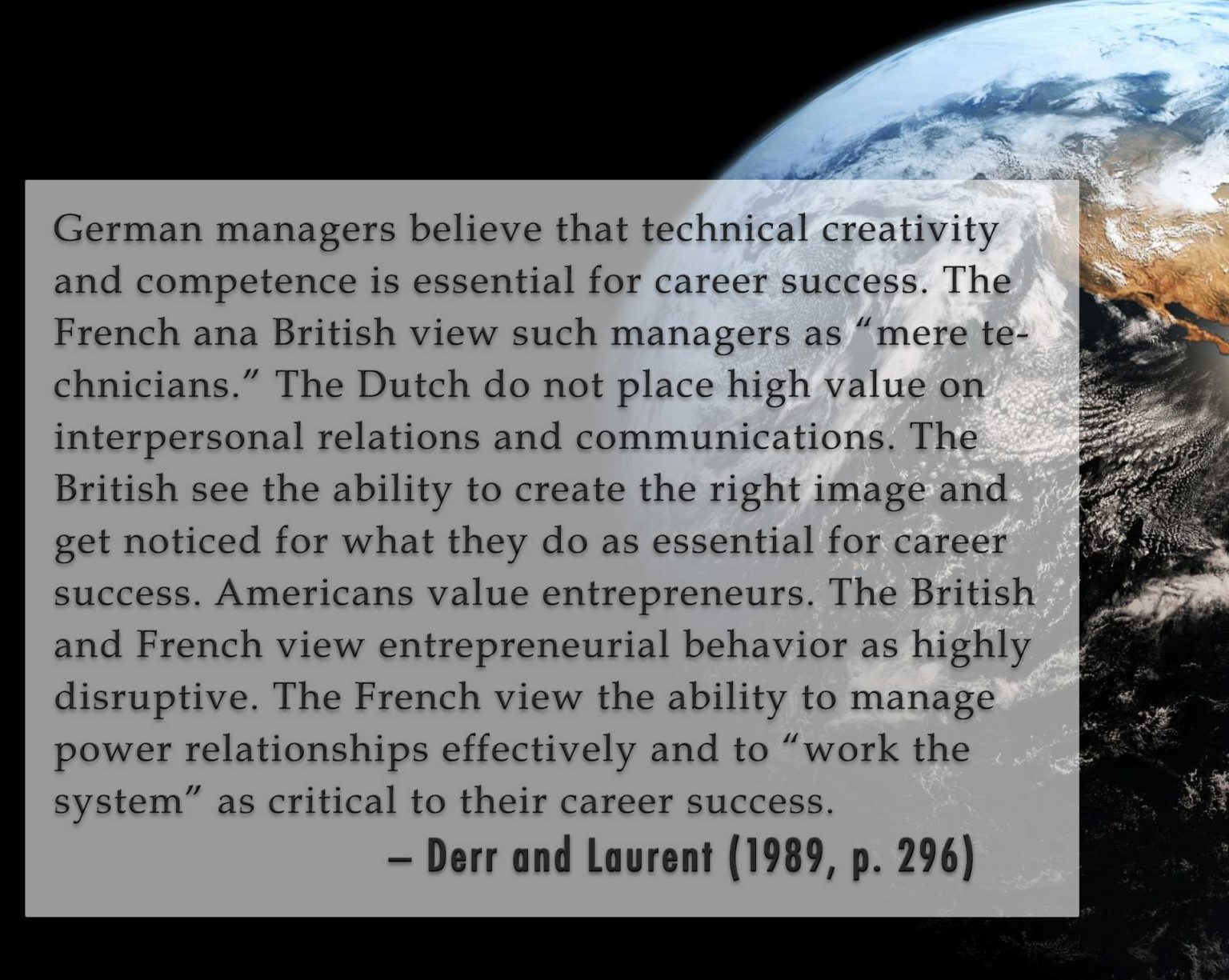In an increasingly interconnected world, the role of global managers has become more crucial than ever. These individuals are tasked with overseeing international operations, leading diverse teams, and driving business success across borders. However, what defines an effective global manager can be highly subjective, and it often depends on the cultural context in which they operate.
Cultural Perspectives on Management
As Derr and Laurent noted in their 1989 study, cultural perceptions of effective management can vary significantly. For instance, German managers prioritize technical creativity and competence as essential for career success. In contrast, the French and British may view such managers as “mere technicians.” The Dutch may not place a high value on interpersonal relations and communications, while the British believe in the importance of creating the right image and getting noticed. Americans, on the other hand, highly value entrepreneurs, while the British and French may view entrepreneurial behavior as disruptive. The French emphasize the ability to manage power relationships and “work the system” as critical to career success.
Measuring Effectiveness in a Global Context
Given this cultural diversity in defining effectiveness, how can one measure the success of a global manager? The answer lies in acknowledging and respecting these cultural differences. Effectiveness in global management should be assessed through a multifaceted lens that takes into account the nuances of each culture.
1. Management and Leadership
Leadership styles can vary greatly across cultures. Some cultures favor autocratic leadership, while others value participative and collaborative approaches. Effective global managers must adapt their leadership style to align with the cultural expectations of their teams.
2. Interpersonal Relationships
The importance of building interpersonal relationships also differs by culture. Some cultures prioritize personal connections and relationship-building, while others are more task-oriented. Global managers need to recognize these preferences and adjust their communication and relationship-building strategies accordingly.
3. Knowledge and Initiative
The emphasis on technical competence, creativity, and entrepreneurialism varies across cultures. While some cultures highly value technical skills and innovation, others prioritize adaptability and teamwork. Effective global managers should possess a diverse skill set that allows them to excel in various cultural contexts.
4. Success Orientation
The definition of success and how it is pursued can vary significantly. Some cultures emphasize individual achievement, while others prioritize collective success or societal well-being. Global managers should align their goals and strategies with the prevailing cultural values of their host country.
The Importance of Cultural Adaptability
One of the key skills for success in global management is cultural adaptability. Global managers must be attuned to local laws, customs, norms, beliefs, and values. Ignoring or disrespecting these cultural factors can lead to misunderstandings and hinder business success.
Cultural Nuances and Complex Interactions
Managing across cultures involves navigating the complex interactions of cultural norms and attitudes. It requires a deep understanding of cultural diversity and an ability to find common ground and build bridges between different perspectives.
No Universal Approach
In the realm of global management, there is no one-size-fits-all approach. Effective global managers are those who can adapt and navigate these cultural differences to achieve their objectives while respecting local customs and values.
In conclusion, measuring effectiveness in global management is a nuanced and culturally sensitive endeavor. Global managers must recognize that different cultures have varying expectations and values regarding leadership, relationships, knowledge, and success. Success in global management hinges on the ability to adapt, appreciate, and navigate these cultural differences while driving business success in a globalized world.
#leadership #management #globalmanagement #performance #culturalintelligence


Leave a Reply